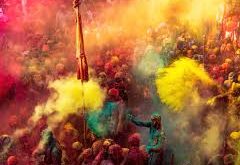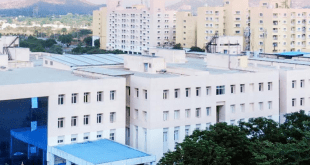Experts highlight urgent need for awareness, diagnosis, and control
According to the World Health Organisation (WHO), in India hypertension affects around 220 million people, with only 12% managing to keep their blood pressure under control. According to the available data, the prevalence among adults aged 30–79 is slightly lower than the global average at 31%, but the levels of awareness, diagnosis, and treatment remain worryingly low. Just 37% have been diagnosed, and 30% are receiving treatment, meaning a significant majority are either unaware or inadequately treated.
The urgency of the situation is highlighted by WHO’s projection that 76 million deaths could be prevented globally by 2050 if hypertension is brought under control. In India alone, reaching a 50% control rate could avert 4.6 million deaths by 2040. Medical experts highlight the need for regular and accurate monitoring of blood pressure, early detection, and effective treatment to prevent life-threatening complications.
A research paper on the website of the Journal of the American Medical Association said a cross-sectional survey study of Indian adults found that more than 1 in 4 people had hypertension, and of these, only one in three received a diagnosis. The survey further said that less than one in five patients got treatment, and only one in twelve had their blood pressure control.
Hypertension is often called the “silent killer” as it rarely shows symptoms but significantly raises the risk of heart attacks, strokes, kidney disease, and premature death, according to Dr Ashish Agarwal, director & unit head (Unit-1), cardiology, Aakash Healthcare.
High blood pressure is defined as a systolic reading of 140 mmHg or higher or a diastolic reading of 90 mmHg or higher. Worryingly, nearly 30% of undiagnosed individuals have dangerously elevated readings of 160/100 mmHg or more, which indicates a serious risk of complications if left untreated, according to Dr. Pranjit Bhowmik, Chairman – Internal Medicine, Asian Hospital.
Hypertension is influenced by genetics and age, but lifestyle factors also play a major role. A diet high in salt, lack of physical activity, excessive alcohol consumption, poor sleep, and stress are key contributors, according to Dr Vineet Rao, Consultant – General Medicine, Jupiter Hospital, Baner, Pune.
Experts recommend short bursts of physical activity, a balanced diet low in salt, regular check-ups, and maintaining a healthy weight to manage blood pressure. Home monitoring is also encouraged, but should be done using validated devices and following correct procedures, Dr Vineet Rao, Consultant – General Medicine, Jupiter Hospital, Baner, Pune said.
The message is clear: know your blood pressure, take action early, and stick to the treatment. Controlling blood pressure is one of the most cost-effective and life-saving interventions in healthcare. With awareness and commitment, we can beat this silent killer before it claims more lives, according to Dr. Praveen Gupta is Principal Director & Chief of Neurology, Fortis Hospital.
According to Dr Ashish Agarwal, director & unit head (Unit-1), cardiology , Aakash Healthcare, “Measure your blood pressure accurately, control it, live longer” is more than a slogan; it is a critical call to action. Hypertension is often without any symptoms, but can quietly damage vital organs over time. Thus, making accurate detection the first and most important step toward saving lives, he said.
 Newspatrolling.com News cum Content Syndication Portal Online
Newspatrolling.com News cum Content Syndication Portal Online






